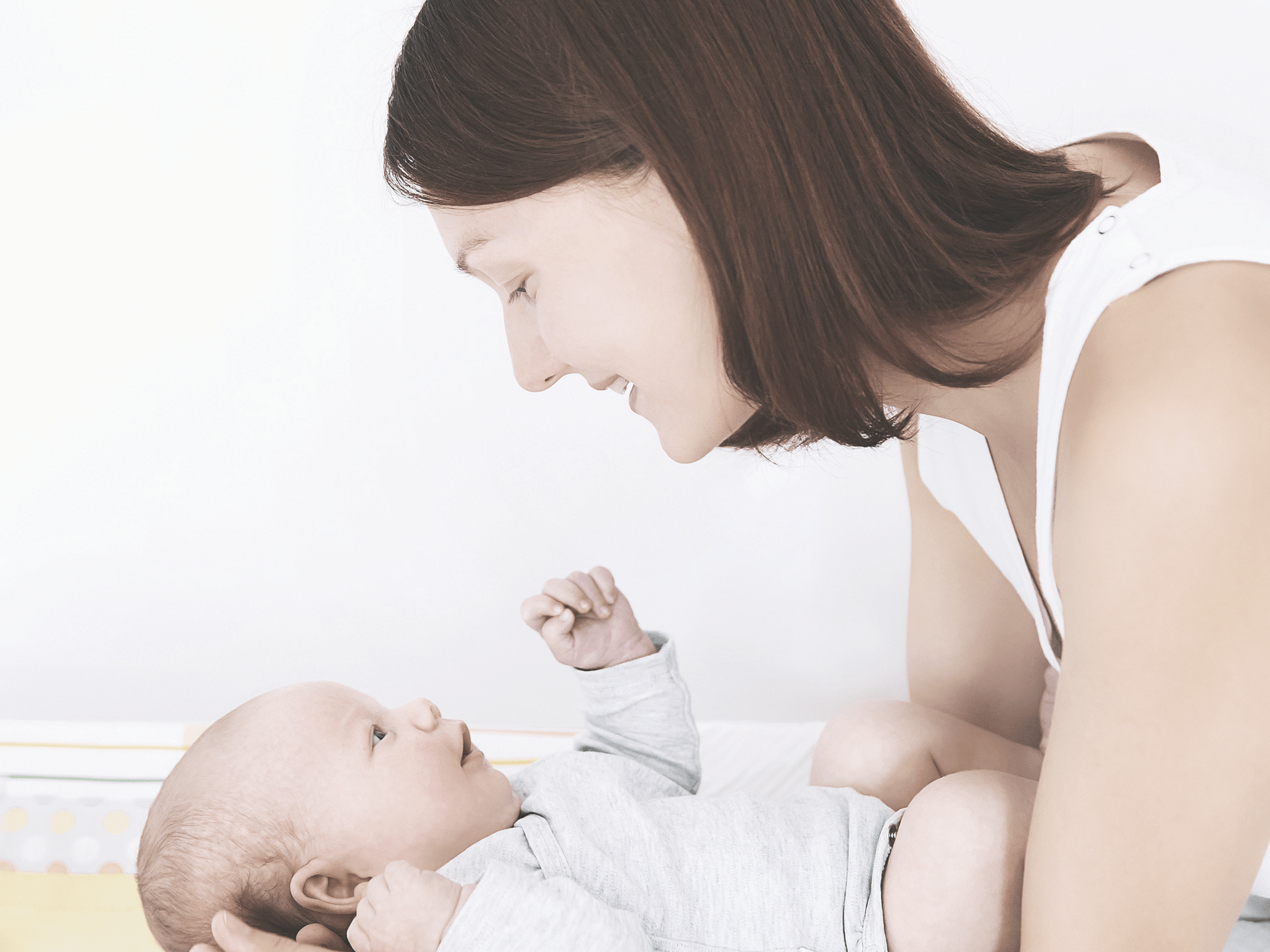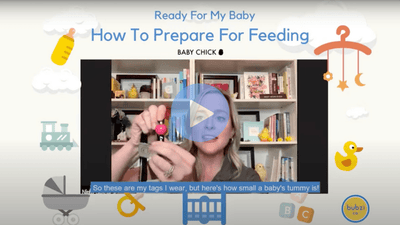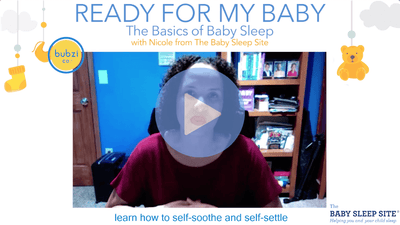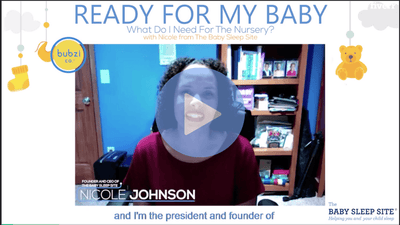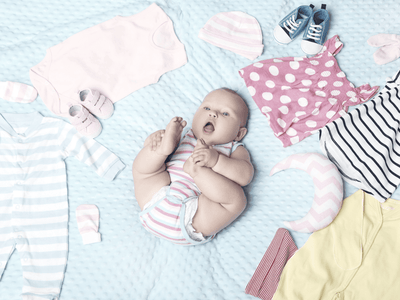A Survival Guide for Baby’s First Two Years
No one said motherhood would be easy – there’s going to be times where it’s overwhelming, tiring and even downright stressful. But the rewards of having children far outweigh the hard times. Just think about all those milestones that baby will hit, especially in their first two years. The thrill of seeing them hold up their little head or crawl for the first time is both exciting and heartwarming. But these developments aren’t just photo ops or heartwarming memories, they’re also important tasks in your baby’s overall development. Knowing these key moments in your baby’s life will give you something to focus your attention on in the first two years. That’s why we’ve compiled the top 10 most important things you should do and pay attention to during your baby’s first two years.
Baby’s First Two Years: Important Tasks for First Time Moms
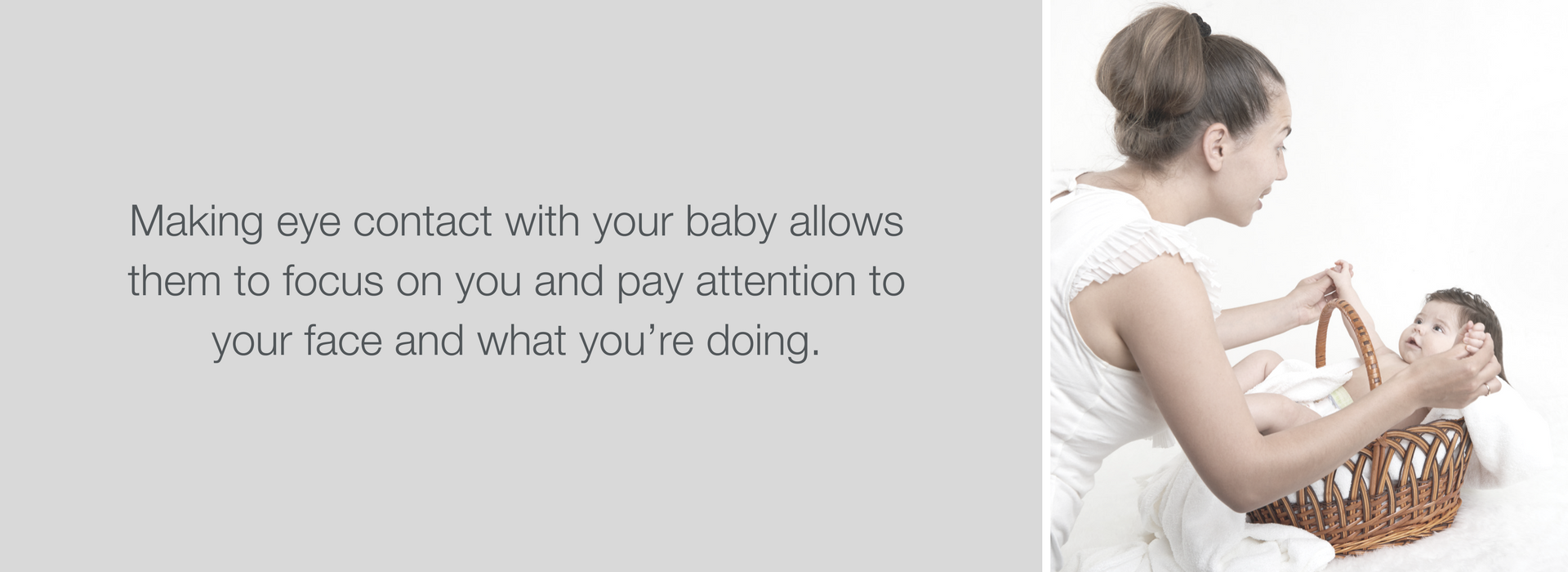
1. Between 1-2 Months: Focus on Making Eye Contact with Baby
This is one of the first milestones your baby will hit and one that is important to pay attention to. Making eye contact with your baby allows them to focus on you and pay attention to your face and what you’re doing. It also indicates that their brains are showing neurological growth and starting the early stages of communication. By focusing on you, baby is learning to recognize a familiar face.
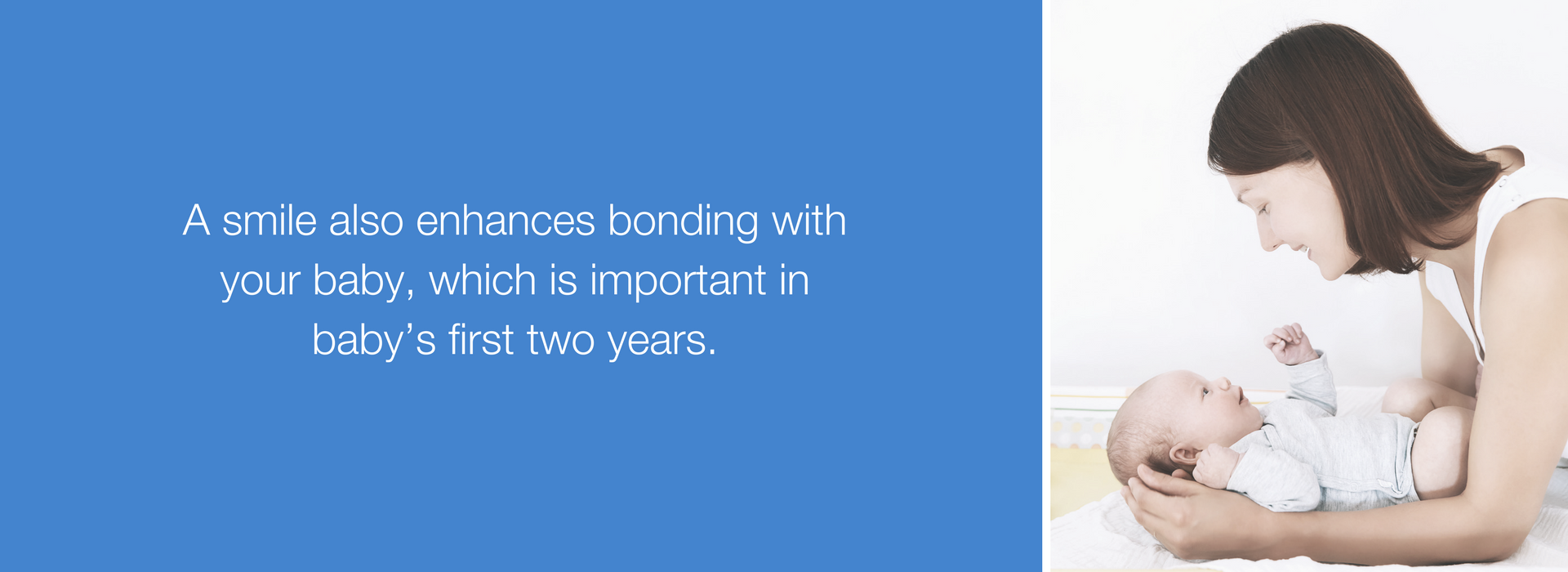
2. 3 Months: Smile At Your Baby
Smiles are contagious – when you smile at someone, it’s hard for them not to smile back. The same goes for your baby. Once baby has learnt how to smile, they will naturally smile in response to someone else’s smile. It shows that their brain is maturing, and they’re beginning to see short distances, make sense of an object and produce their own smile in return. A smile also enhances bonding with your baby, which is important in baby’s first two years.
3. 2 months: Talk Back to Your Baby and Coo
As everyone knows, baby’s first form of communication is mainly crying. But around 2 months, your baby’s brain, specifically the front temporal lobe, starts to develop and baby starts to coo. Try talking back to your baby to see their reaction. Baby might just realize that they are beginning to communicate in a different way. Help encourage this cooing by narrating what you’re doing, “Mommy’s putting on her shoes. Now we’re changing your diaper” etc.
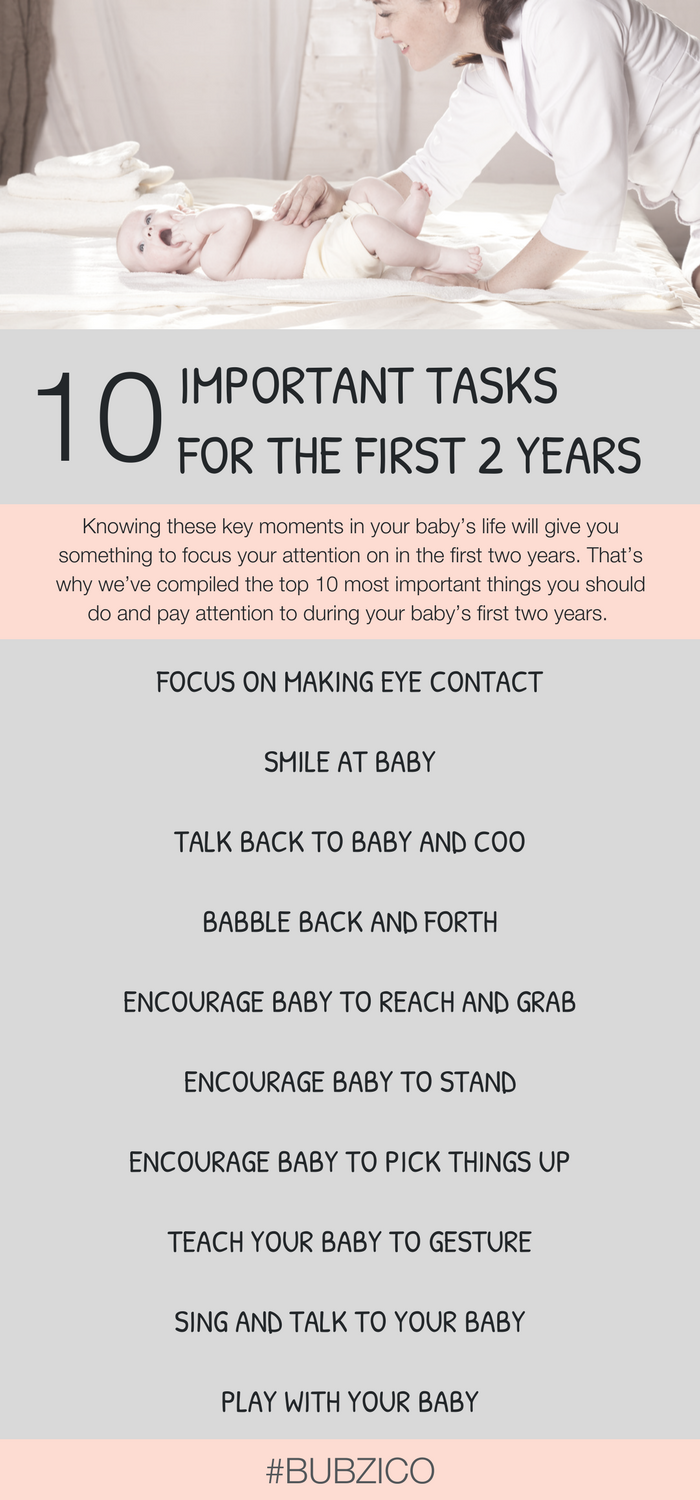
4. 6-8 Months: Babble Back and Forth
From cooing comes babbling, usually around 6-8 months old. Once your baby starts, it’ll be hard to get them to stop – they’ll want to practice! Once baby has learnt how to babble on their own, they will eventually move on to responding to your voice by babbling. This is the first step in their development of language. Encourage this babbling by talking to your baby often and about everything going on in their little lives.
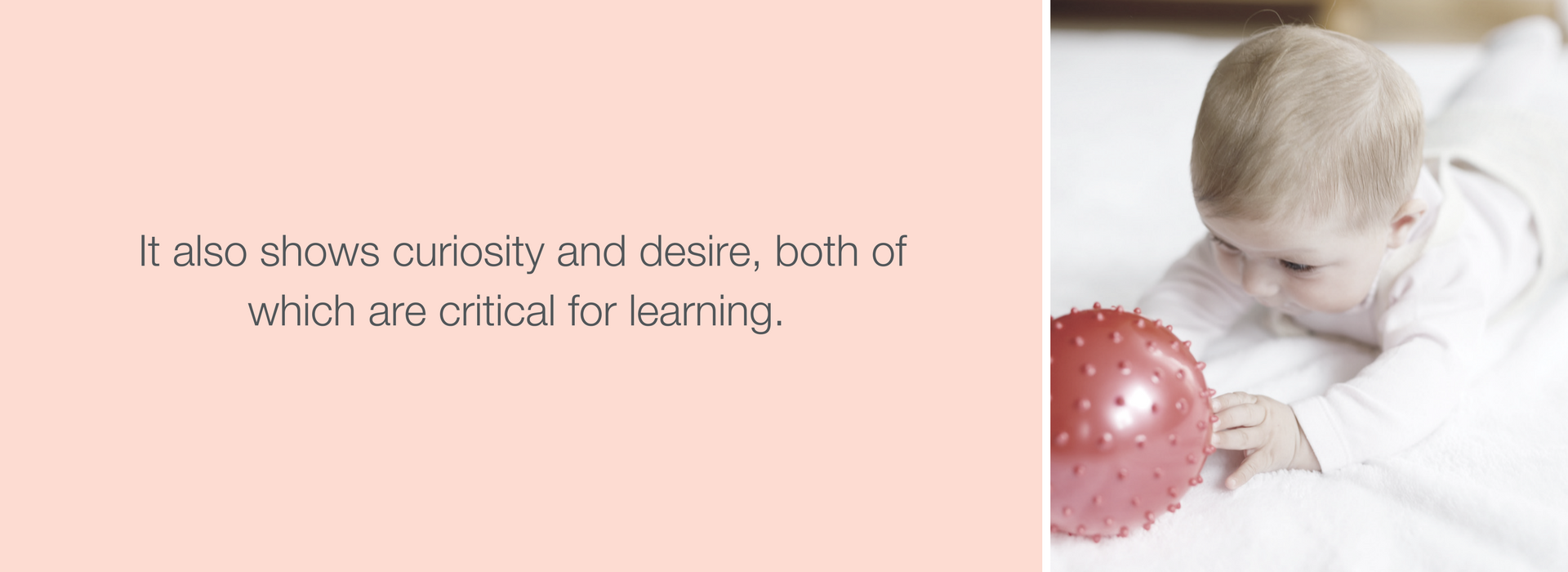
5. Encourage Baby to Reach and Grab
When baby starts to reach for things and grab them, it shows they are interested in the world around them. It also shows curiosity and desire, both of which are critical for learning. To encourage reaching and grabbing, get down to baby’s level and play with them. Place a favorite toy out of reach during tummy time or when you’re playing on the carpet. The more you encourage, the more you’ll engage their senses like touch, smell, look and learn about objects and the world around them.
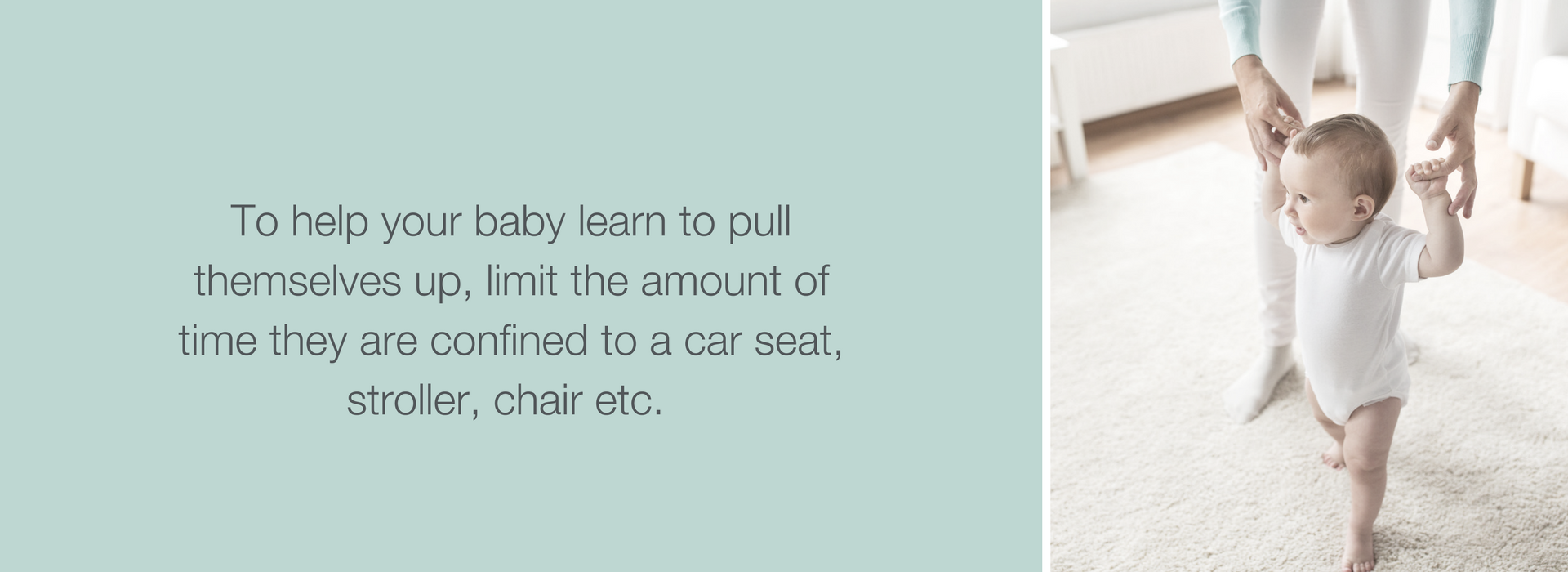
6. 9-10 Months: Encouraging Baby to Stand
Around 9-10 months, your baby will be getting ready to walk. The first sign that they’re ready is when they start pulling themselves up to a standing position. This is an important milestone as it shows they are becoming more stable and building strength in the legs, both of which are important for walking. To help your baby learn to pull themselves up, limit the amount of time they are confined to a car seat, stroller, chair etc. Allow your baby time to move and discover the world around them.
7. Encourage Baby to Pick Things Up
Baby first starts to develop their fine motor skills around 7-8 months old when they start to use their fingers and thumb to pick up a spoon or toy. A few months later, they begin to refine that skill and will use just their thumb and forefinger to pick up a treat or toy. Developing this pincer grasp is key to their overall independence. To encourage this skill in your baby, just simply let them hang out in their high chair with a few Cheerios or crackers.
RELATED: From Breastfeeding to Solids: Baby Food Guidelines for Every Stage
8. Teach your Baby to Gesture
Gestures are a pre-verbal form of language and can be easily taught and encouraged. Gestures are a sign that your baby knows what they are thinking and are communicating their wants/needs to you through these gestures. Just simply gesturing when you talk to your baby can encourage them to try themselves. Eventually your baby will copy you and do it back.
9. Talk and Sing with Your Baby
Usually babies start to talk around the 12 month mark. The best way to encourage and support talking in your baby is to simply spend time talking, singing and reading to them. A daily story, song and regular talk will encourage your baby to do the same.
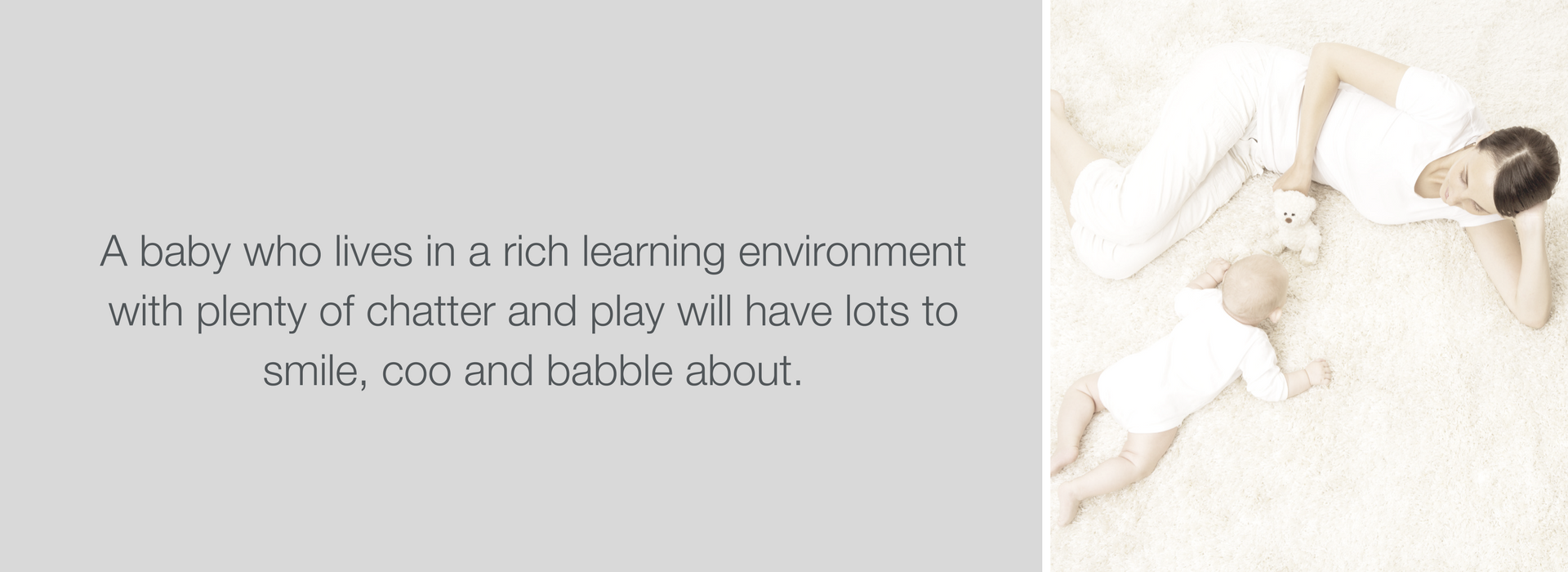
10. Play with Your Baby
Spending time with your baby and simply playing with them not only builds their symbolic thinking, it also helps you bond with your baby. A baby who lives in a rich learning environment with plenty of chatter and play will have lots to smile, coo and babble about.
Ultimately the most important piece of new mom advice that comes from these 10 tips is to spend time with your baby, especially in baby’s first two years. Even if it means talking like a baby, cooing or getting down on your hands and knees to play, you won’t regret being present for those thrilling first time achievements. Life as a new mom can be overwhelming but there’s nothing better than seeing your baby grow and hit their developmental milestones. And what better way to capture those milestones than with Bubzi Co's Baby Handprint and Footprint Air-Drying Clay Frame DIY Kit or Bubzi Co’s DIY Baby Handprint and Footprint Ink Frame Keepsake Kit. These keepsake kits allow you to capture the essence of your little one by making impressions of their little hands and feet. Because as we know, babies grow and change so quickly – you have to capture the moment while you still can!
Photocredit: Bigstock, Pixabay



